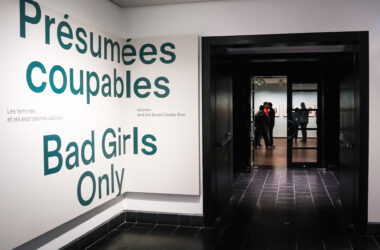When the Golden Globes kickstarted the awards show season on Jan. 8, the normally easy-going ceremony was set with an unusually tense energy. Award shows are a time for the entertainment industry to pat itself on the back for its accomplishments in film and television. This year, celebrities went even further to congratulate themselves on their liberal pseudo-activism in the face of the Trump presidency.
“I just think it can be gross sometimes, the way Hollywood congratulates itself all the time,” actor and comedian Zach Galifinakis told The Hollywood Reporter in 2014.
Since Trump’s election, Hollywood’s ‘liberal elite’ have been forced to face the limits of their power. The entertainment industry fancies itself the epicentre of American culture, but despite an almost unanimous outcry from Hollywood, Trump still won. Award shows now not only shed light on Hollywood’s successes, but also its failures—and Hollywood is unsure of how to move forward.
In the first few moments of his opening monologue at the Globes, host Jimmy Fallon strode to centre stage, only to be met with a broken teleprompter. The broken monitor was a perfect metaphor for the entertainment industry’s difficulties in moving forward in the new Trump administration; quite literally, Hollywood is speechless.
The ensuing ceremony was filled with clumsy political messaging. The Hollywood Foreign Press and its guests are unsure of their role within America’s shifting landscape. On one hand, awards shows are making concerted efforts to avoid partisan debate. Fallon is infamously apolitical, and received widespread criticism for ruffling Trump’s hair in a bit on his show. Similarly, February’s Academy Awards host Jimmy Kimmel told Salon, “I do say whatever I want. I just try to keep in mind that mine is not a political show.”
When receiving The Cecil B. DeMille Lifetime Achievement Award, Meryl Streep used her acceptance speech to steer the Golden Globes back into activist territory. Her speech, which condemned Trump’s racist, misogynistic, and ableist rhetoric, predictably ignited a media firestorm. It also begged the question: What is the role of the celebrity in the Trump era?
“[The Golden Globes is an] overrated collection of liberals gathered in a room to celebrate themselves,” said Tomi Lahren, host of the conservative talk show Tomi on TheBlaze. Lahren is notorious for inflammatory dialogue, yet this description is surprisingly apt; Hollywood’s insularity is often its biggest weakness. Yes, Streep’s speech was powerful, but it addressed an audience of like-minded entertainers. The Golden Globes was quick to pride itself on the tremendous progress it has made, without recognizing gaping inequalities.
Fallon’s monologue cheekily pointed out that at least this year, “not all the nominees are white;” however, Hidden Figures and Fences, two films with predominantly black casts, were continuously mistaken for one another throughout the night. Streep described how heartbreaking it was watching Trump mock Serge Kovaleski, a reporter with arthrogryposis. Yet Hollywood has a long history of failing to cast disabled actors: In 2015 Eddie Redmayne, a fully able-bodied actor, won both a Golden Globe and an Academy Award for his portrayal of Stephen Hawking, who struggles with ALS, in The Theory of Everything. Disability activist Kody Keplinger told the Huffington Post, “I couldn’t help rolling my eyes [at Streep’s speech]. The applause in the room felt almost self-congratulatory.”
Self-congratulation is not inherently flawed. There are many movies, television shows, and other creative forces worth celebrating. It is problematic, however, when Hollywood congratulates itself at the cost of improvement. Awards shows are a good time to look at not only where the entertainment industry is doing well, but also where it can do better. Streep’s speech was undoubtedly moving, and public figures will always play a role in influencing public affairs. Still, in conducting a Trump post-mortem, Hollywood must recognize that the scope of its outward political effectiveness is limited. Hollywood must work against the structures of inequality within itself to make the most effective difference.
A previous version of this article stated that Kovaleski has cerebral palsy. Kovaleski has arthrogryposis. The Tribune regrets this error.










It’s probably worth noting that Serge Kovaleski has arthrogryposis, not cerebral palsy.
Thank you for pointing out the mistake! We have made the correction.